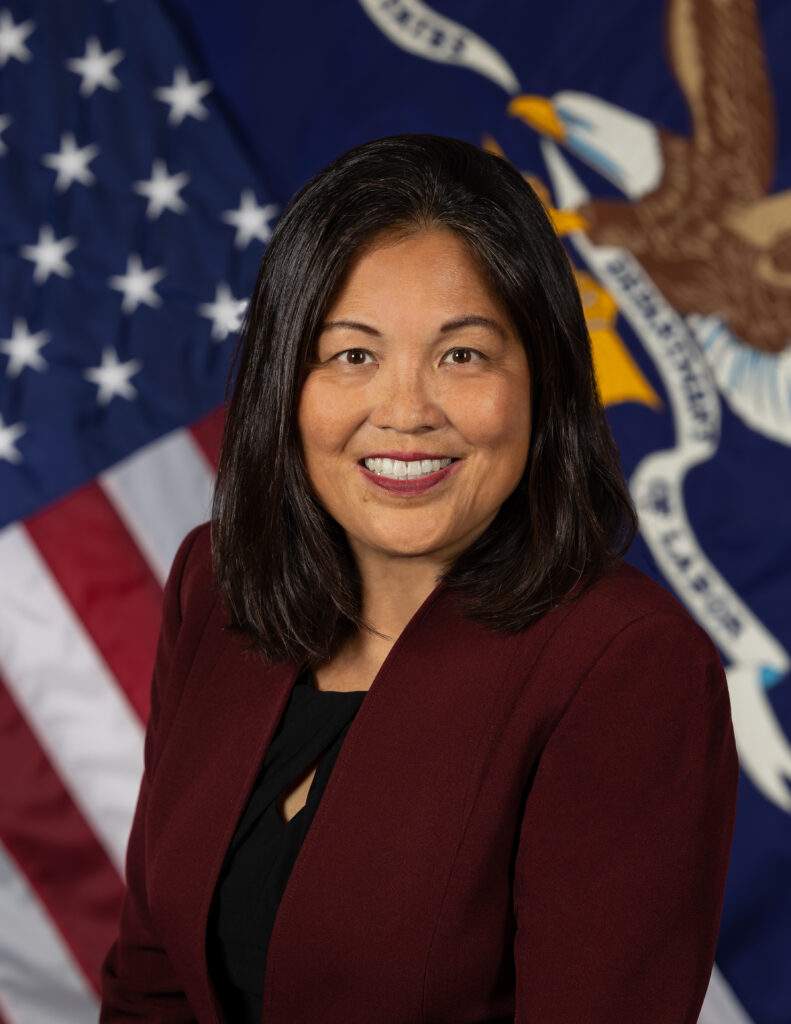Julie Su on AI in Hollywood

Senate Democrats are once again moving to confirm Julie Su as Secretary of Labor. Corporate America is freaking out because they hate her with fiery passion. She went after tech companies after all. If you needed a stronger reason why someone should be Secretary of Labor, having all of capital hating you as good as it is going to get. She also has a serious stake in monitoring AI and in fact was at the Screen Actors Guild awards in solidarity with SAG-AFTRA after their victory in their strike last year.
In a sign of the times in Hollywood, acting U.S. Secretary of Labor Julie Su will be attending the guild ceremony to acknowledge the impact of SAG-AFTRA’s 2023 strike and resulting contract. “It’s been a big year for SAG-AFTRA,” Su — who is attending the awards in her personal capacity — explained in an interview on Wednesday. She added that she wanted to celebrate with the union and “acknowledge the important role that they played in lifting up workers.”
Su is no stranger to the Hollywood labor landscape, having served as the California labor commissioner for seven years and communicated with the actors’ union, the Writers Guild of America and the Alliance of Motion Picture and Television Producers during the 2023 strikes. (She did not, however, get involved in the negotiations, as she did during the West Coast port talks last year.) In an interview prior to her attendance at the SAG Awards, she discussed the role she believes Hollywood unions play in the larger labor landscape and explained her approach to AI, and the threat and opportunity it poses to workers.
Was there anything in particular that stood out to you as significant about SAG-AFTRA’s deal last year?
There was so much about what SAG-AFTRA did that I think was significant. One was obviously just being part of a moment in this country where workers are really demanding their fair share. We saw that from Hollywood to healthcare to auto workers to teachers to dock workers. All of these unions’ contracts had an impact not just on union workers, but also on non-union workers, it really just sent a strong message about the importance of working people. The other thing is that they had to go on strike to get those wins, and that is never easy. It demands sacrifice and discipline and tremendous solidarity, and so they helped to demonstrate the power of the strike. But one other specific piece, you asked about their contract, obviously it’s always about wages and working conditions, but SAG-AFTRA was one of the unions that really demonstrated the importance of AI and how the technological changes that we are seeing affect working people. And they drew a line in the sand about that, that we have to make sure that we create an industry and a future in which we allow working people to benefit from the positive aspects of AI and be protected against potential negative outcomes. And seeing them do that I think was very powerful, not just for their industry, but for all others who are facing AI in their own way.
Some interesting broader discussion of AI here too:
Let’s talk a little bit about AI. Where are the areas where unions and management can currently be productive in tackling this issue, and where does policy really need to play a role?
One way to answer your question is just that employers and workers should really think together about the impact of AI. It’s important for it not to be a unilateral decision about not just what AI is going to be deployed, but when and how and to what purpose. But one of the things is AI is evolving. And oftentimes by the time a contract is negotiated, it has evolved. And so there is a role for policy, and that’s why the president has issued an executive order about AI that’s really calling on all of us, his administration and private actors, to think about what secure and safe AI looks like. And I would say that AI is neither safe nor secure if it harms working people. So my approach to the executive order is to figure out what do we need to do to ensure that AI does right by workers? I think we also need to challenge AI developers, technologists to really ask themselves, if you are truly committed to innovation, how do we innovate in a way to make technology solve some of the real issues we have in the world, in the workplace?
What is the Department of Labor currently working on when it comes to AI?
So some of it is just this exact question, [which is] how do we think about AI as benefiting workers? We’re also looking at from a workforce perspective, like what jobs change because of AI, and I want to be really clear, the answers to those questions are also not set in stone. It’s not like the robots are coming and we just have to figure out how we adjust to it. Every decision we make determines what that outcome is going to be. We also see that AI could create jobs and how do we ensure that we have a workforce that’s ready for those jobs and that workforce looks like America, that everybody has access to [them]. I’m not somebody who believes that [AI is] going to wholesale eliminate whole categories of jobs, although it’s important for us to look at that, but how do we think about how AI can complement human ingenuity, human talent, human capability, and then really build a workforce system that helps to prepare workers for those changes?
Su is a very real advocate for the American working class as it is in 2024, as opposed to some nostalgia for what it was in 1957. It’s no wonder the companies loathe her so. She’s good at the job!


